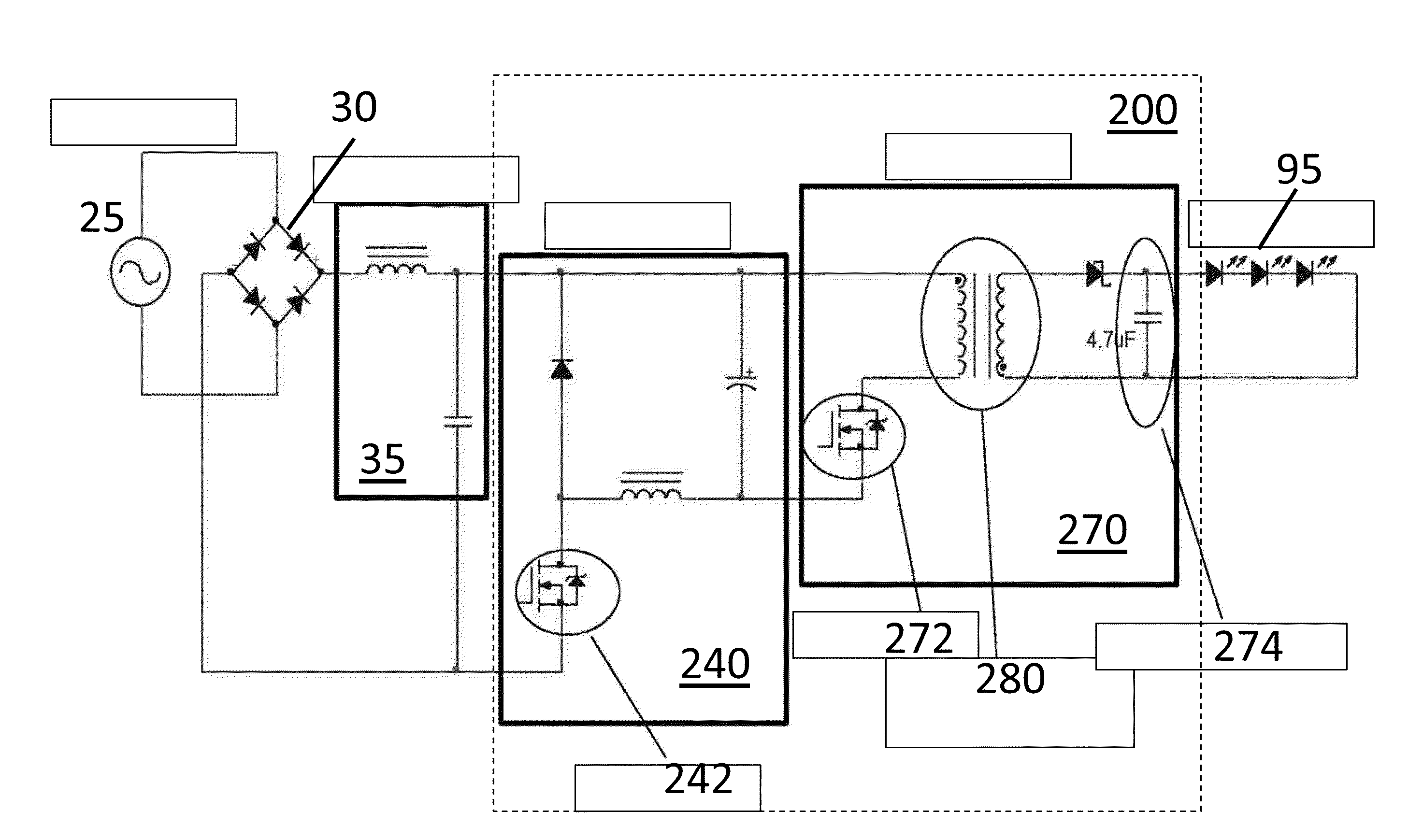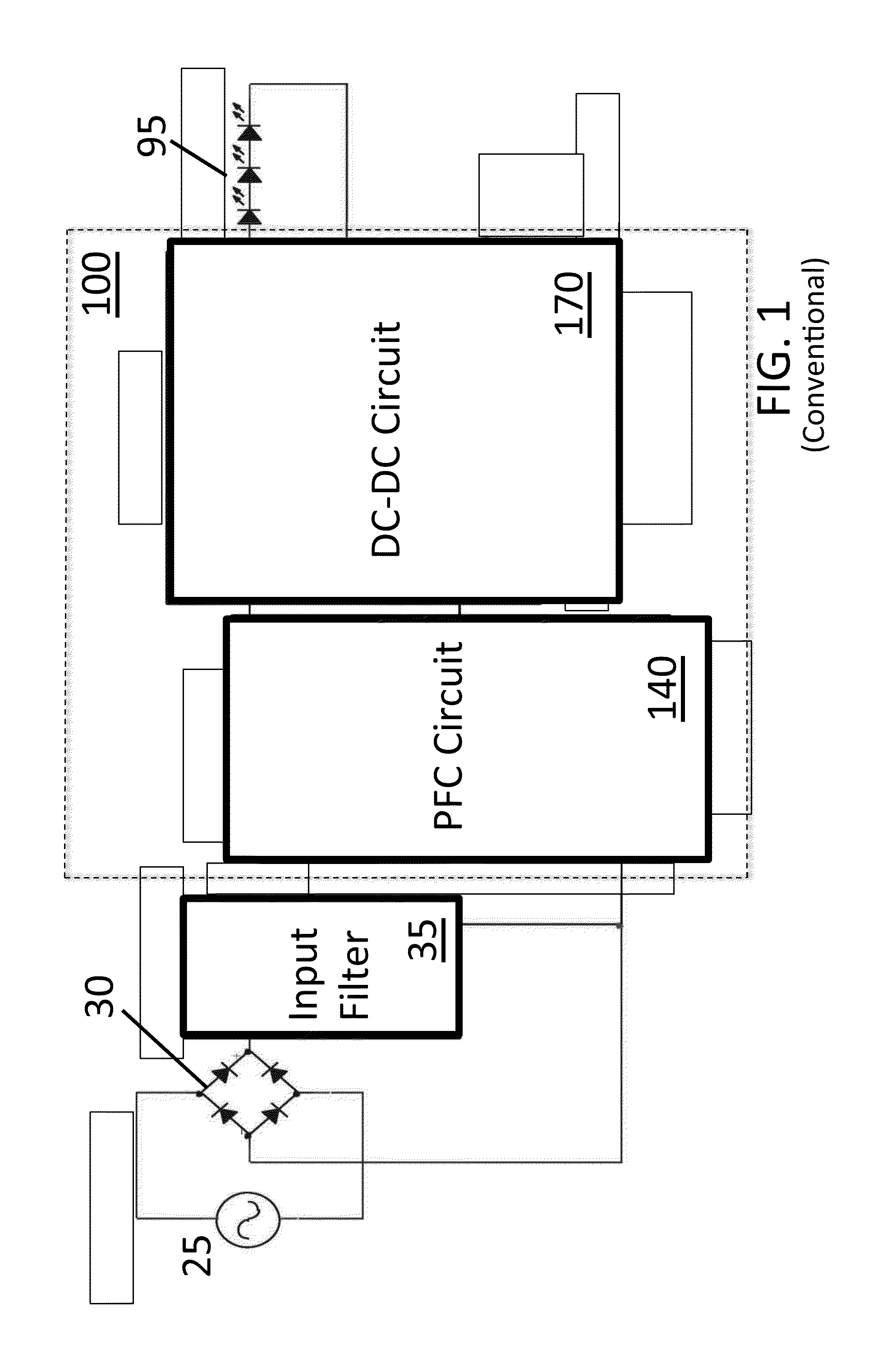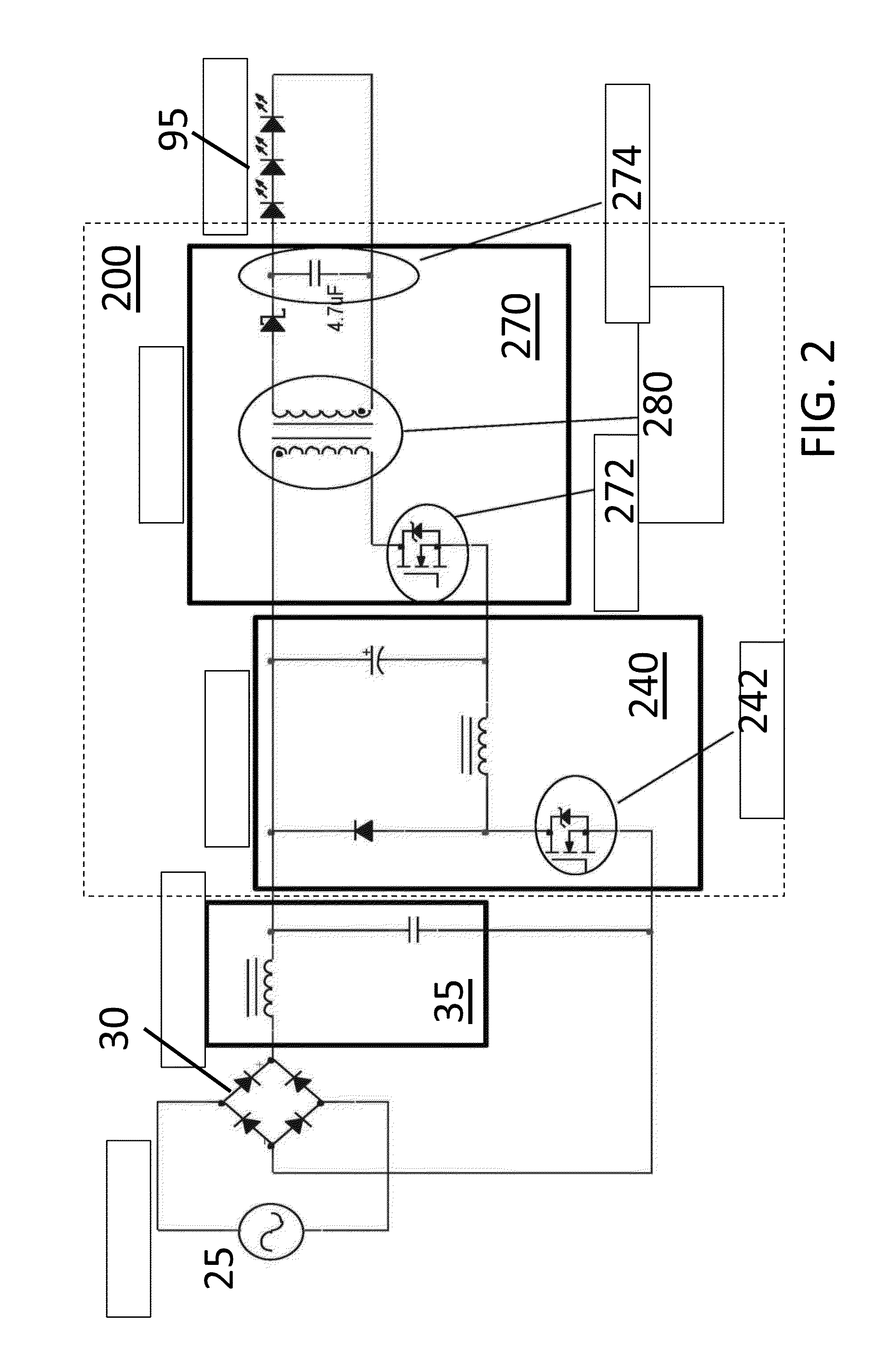Single-stage ac-dc power converter with flyback pfc and improved thd
a flyback technology, applied in the field of high-efficiency single-stage ac-dc power converters, can solve the problems of large output current ripple, low power factor or ratio of real power to apparent power, converter draws excess current but fails to use excess current to perform or accomplish any circuit function, etc., to achieve the effect of improving thd results and reducing curren
- Summary
- Abstract
- Description
- Claims
- Application Information
AI Technical Summary
Benefits of technology
Problems solved by technology
Method used
Image
Examples
Embodiment Construction
[0018]Given the aforementioned deficiencies, a need exists for systems, methods, and devices providing a low cost and efficient LED driver. Particularly, what are needed are systems, methods, and devices that enable an active buck topology, functioning in transition mode, to be used as a first PFC stage of an LED driver whereby the buck topology is designed in such a manner that it can be controlled with a low cost control chip that is typically only used with boost or flyback topologies, while still achieving good THD results. Further, what are needed are systems, methods, and devices that enable a flyback current circuit to be used as a second stage of an LED driver, whereby the flyback circuit includes a switch or jumper setting selectable by the user that enables the LED driver to be toggled or switched between two different output currents—depending upon the requirements of the LED load being powered by the LED driver.
[0019]Embodiments of the present invention provide a light e...
PUM
 Login to View More
Login to View More Abstract
Description
Claims
Application Information
 Login to View More
Login to View More - R&D
- Intellectual Property
- Life Sciences
- Materials
- Tech Scout
- Unparalleled Data Quality
- Higher Quality Content
- 60% Fewer Hallucinations
Browse by: Latest US Patents, China's latest patents, Technical Efficacy Thesaurus, Application Domain, Technology Topic, Popular Technical Reports.
© 2025 PatSnap. All rights reserved.Legal|Privacy policy|Modern Slavery Act Transparency Statement|Sitemap|About US| Contact US: help@patsnap.com



